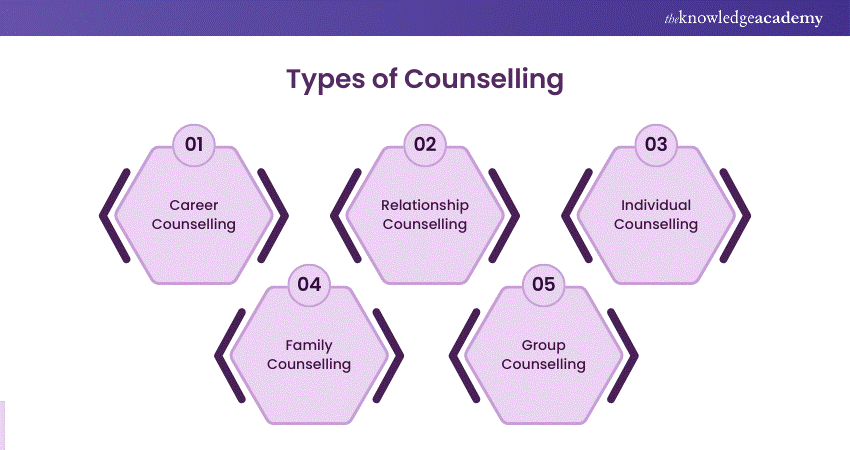Why relationship therapy services is Better Than Ever Before
Wiki Article
Discovering the Benefits of Virtual Therapy in Modern Mental Wellness Treatment
The rise of virtual therapy marks a substantial shift in mental healthcare. It offers enhanced access, enabling individuals from varied backgrounds to seek aid without geographical constraints. Flexibility in scheduling accommodates varying way of lives, while the convenience of home can foster visibility. The effects of these adjustments extend beyond plain convenience. The evolving landscape of therapy raises important inquiries concerning its long-lasting impacts on client engagement and treatment end results.Enhanced Availability for All
Although traditional therapy typically provides barriers such as geographical area and organizing disputes, virtual therapy substantially enhances ease of access for people looking for psychological health support. By eliminating the demand for physical travel, virtual therapy permits customers from remote areas or those with movement challenges to get in touch with qualified specialists. This setting of therapy can get to underserved populations that might lack neighborhood psychological health sources, therefore dealing with variations in accessibility to care. Additionally, virtual platforms can accommodate diverse requirements, offering services in numerous languages and suiting various social backgrounds. Customers can involve with a wider series of specialists, providing them with options that line up with their particular demands and choices. This boosted ease of access fosters an extra comprehensive atmosphere, permitting individuals to look for help without the preconception usually connected with in-person visits. Overall, virtual therapy represents a significant innovation in making mental healthcare more easily accessible to all.Versatility in Scheduling Procedure

As virtual therapy proceeds to gain grip, its integral flexibility in scheduling sessions confirms to be a significant advantage for many individuals. Unlike conventional in-person therapy, virtual therapy allows clients to choose session times that finest fit their individual and professional dedications. This flexibility fits those with demanding job timetables, family members obligations, or other dedications that can make going to physical visits testing.
Additionally, clients can conveniently reschedule or change their sessions as needed, minimizing the stress and anxiety associated with stiff visit systems. The schedule of different time slots throughout the week, including evenings and weekend breaks, additionally enhances access. This adaptability not only motivates consistency present yet additionally fosters a higher commitment to the healing process. Ultimately, the adaptability in organizing sessions stands for a transformative shift in psychological healthcare, empowering individuals to prioritize their wellness without giving up other facets of their lives.
Convenience of a Familiar Setting
The comfort of an acquainted setting significantly boosts the efficiency of virtual therapy for several clients. Participating in therapy from the security of their own homes enables individuals to feel more comfortable, minimizing anxiousness that might come with conventional in-person sessions. This experience can facilitate open interaction, enabling clients to share their ideas and sensations much more openly.Additionally, the visibility of personal products and the ability to manage their surroundings can contribute to a complacency and leisure. Customers commonly report that being in a comfortable area allows them to concentrate more on the restorative process rather than the establishing itself.
In addition, the informal nature of virtual sessions can aid dissolve barriers that might exist in a traditional office environment, promoting a deeper connection with specialists. Generally, the convenience of acquainted environments plays an essential duty in boosting the therapeutic experience and efficiency for numerous individuals seeking psychological health support.
Wider Variety Of Restorative Options
A broader series of restorative options appears through virtual therapy, allowing customers to accessibility numerous methods that may not be viable in typical setups. This versatility enables people to check out diverse approaches such as cognitive-behavioral therapy, mindfulness techniques, art therapy, and also specialized interventions like trauma-informed treatment or dialectical habits therapy.Customers can pick from a more comprehensive spectrum of therapists, including those that specialize in niche areas or particular populations, boosting the likelihood of locating a suitable suit. Virtual platforms typically provide accessibility to group therapy sessions, assistance communities, and workshops that may be geographically unavailable otherwise.
This variety encourages clients to participate in their healing process according to their special preferences and requirements, potentially increasing inspiration and dedication to treatment. Therefore, the landscape of psychological healthcare ends up being more inclusive and versatile, providing to a broader selection of specific experiences and difficulties.
Lowered Stigma Bordering Therapy
Accessing therapy through virtual platforms adds to a considerable reduction in the preconception traditionally related to mental health care. By giving a discreet and private setting, virtual therapy permits people to seek help without the anxiety of being evaluated or identified. This anonymity appeals to those that may or else hesitate to pursue in-person therapy because of social assumptions surrounding mental wellness.As the occurrence of virtual therapy rises, it normalizes the discussion around psychological health, making it a much more appropriate part of everyday life. People often really feel extra comfortable reviewing their experiences on-line, advertising openness and lowering sensations of seclusion. The availability of these solutions likewise encourages a broader market to involve with psychological health and wellness resources, fostering a culture of support as opposed to embarassment. Eventually, the surge of virtual therapy plays an essential duty in Extra resources improving mindsets in the direction of looking for assistance, adding to a more accepting culture relating to psychological health challenges.
Cost-Effectiveness and Price

Lowered Session Expenses
Many people seeking mental health assistance discover that virtual therapy substantially reduces session costs contrasted to typical in-person alternatives. The removal of travel costs and pause work often adds to total cost Check This Out savings. Furthermore, lots of virtual therapists supply affordable rates as a result of reduced above expenses related to keeping a physical office. This shift in expenditure permits clients to accessibility quality psychological health services without the economic strain that might include traditional therapy. For numerous, this price allows a lot more constant sessions, which can boost treatment outcomes. Because of this, virtual therapy not only equalizes accessibility to psychological wellness treatment but additionally offers a sustainable monetary model that lines up with clients' budgets, making mental health and wellness support more obtainable for a wider target market.Expanded Accessibility Choices
While typical therapy frequently offers logistical obstacles, virtual therapy significantly broadens accessibility choices for individuals looking for mental health and wellness care. By eliminating the requirement for travel and permitting versatile scheduling, virtual therapy accommodates varied lifestyles and dedications. This availability is particularly advantageous for those in remote locations or with wheelchair obstacles. Furthermore, the cost-effectiveness of virtual therapy reduces economic stress, making psychological health and wellness services much more reachable. Numerous systems offer tiered pricing or moving range costs, advertising cost. Insurance coverage business progressively recognize virtual therapy, more improving its economic availability. Generally, virtual therapy not just widens the range of that can receive care but also addresses financial obstacles, making mental health and wellness support much more inclusive and obtainable for all.Boosted Continuity of Treatment
Improved continuity of care becomes a substantial benefit of virtual therapy in modern-day mental healthcare. This strategy permits patients to preserve consistent interaction with their therapists, despite geographical obstacles or scheduling conflicts. virtual therapy. The adaptability of virtual sessions promotes normal check-ins, which are vital for monitoring development and adjusting therapy prepares as necessaryFurthermore, digital health records and telehealth systems help with smooth details sharing amongst treatment service providers. This interconnectedness guarantees that all professionals involved in a person's care are upgraded on treatment advancements, resulting in more worked with and efficient treatments.
Clients commonly experience reduced stress and anxiety and increased involvement because of the ease of accessing therapy from familiar environments. Such access enhances adherence to therapy programs, ultimately improving outcomes - virtual therapy. To summarize, virtual therapy not only bridges voids in psychological wellness services but likewise fortifies the connection Recommended Site of care, an essential part of effective restorative connections
Regularly Asked Questions
Just How Does Virtual Therapy Make Certain Confidentiality and Personal Privacy for Clients?
The present concern addresses the measures virtual therapy uses to protect customer discretion. Using encrypted platforms, secure logins, and conformity with laws like HIPAA, virtual therapy assurances that sensitive info remains personal and inaccessible to unapproved people.Can I Change Therapists Easily in Virtual Therapy?
Switching therapists in virtual therapy is generally simple. Customers can communicate their wish for a change via the system, enabling for adaptability in finding a far better suit without the logistical challenges of in-person consultations.What Technology Do I Required for Virtual Therapy Sessions?
To take part in virtual therapy sessions, a private normally needs a trustworthy web connection, a computer or smartphone with a cam and microphone, and access to a safe video clip conferencing system specified by their specialist.
Are Virtual Therapy Procedure as Effective as In-Person Procedure?
Recent research studies suggest that virtual therapy sessions can be equally efficient as in-person sessions, depending on the person's choices and situations. Aspects such as comfort and ease of access might boost the overall restorative experience for some clients.What Should I Do if I Experience Technical Issues During a Session?
If technological concerns emerge during a session, one need to steadly connect the trouble to the therapist, effort to reconnect, or switch to a back-up approach. Patience and flexibility are important in handling these disturbances.Report this wiki page